“I’ve never played like that before, and I’ve never played like that since,” recalled Ringo Starr of his playing on Revolver, The Beatles’ seventh studio album, when I spoke to him a few years back. “But it was just how it happened. But that’s being in the studio, and being in a band. Things can happen.”
Happen they did, and the enormity of what transpired is perhaps only just coming into focus, thanks to a massive new box set, out today. Revolver: Super Deluxe Edition is a treasure trove for any fan of Starr’s former band. It includes a new stereo mix of the original 14-track album (as well as “Paperback Writer” and “Rain,” the Revolver-era single), a gorgeous-sounding transfer of the original mono mix, as well as 31 demos, outtakes and alternate versions from the 1966 sessions, curated by Giles Martin, the son of Beatles producer George Martin and their go-to curator since the younger Martin’s work on the remarkable 2006 LOVE mash-up project. Presented in chronological order, those offcuts give us the ability to listen to The Beatles create what is arguably their greatest work and then hear it again anew via Martin’s new stereo mix or immersive ATMOS mix, sadly only available via Apple Music or Amazon Music.
And that’s the thing — say what you will about Abbey Road or Sgt. Pepper’s Lonely Hearts Club Band, or even the sprawling “White Album,” Revolver is peak Beatles, no matter how you slice the apple.
“I think Revolver‘s where the change happens,” Starr recalled during our conversation. “That’s where we took off creatively.”
“It wasn’t until the advent of the CD, and The Beatles catalog as it originally appeared in the U.K. coming out in 1987, that most of us started to realize what an amazing piece of work it is,” Beatles biographer Mark Lewisohn told me. “And still, people regularly cite other albums — usually Abbey Road or Sgt. Pepper’s — as their favorites, or what they think of as the ‘best’ Beatles album.”
So, why was Revolver overlooked — relatively speaking, of course, given that we’re still talking about a Beatles record here — despite containing some of the band’s best-loved and most ground-breaking work, including “Eleanor Rigby,” “Here, There and Everywhere,” “Got to Get You Into My Life” and “Tomorrow Never Knows”? And why should we consider it better than any of their other chart-topping masterworks?
For one thing, Revolver was released in the middle of a hectic world tour that was being overshadowed by the furor — in the U.S., in particular — over John Lennon’s comments about The Beatles being “bigger than God.” Beyond that, the band didn’t play a single note from Revolver during those shows, which would end up being their last before a paying audience.
“It just wasn’t the event that their other albums were, and certainly not like Rubber Soul, which came just before it, or Sgt. Pepper, which came after it,” recalls the legendary music journalist Mikal Gilmore. “It was overshadowed. Rubber Soul’s a really lovely album, and Sgt. Pepper marked a sea change in popular music and culture in so many ways. But with Revolver, they found these new depths. And I think they defined themselves as a working band. The most they ever would. It turned out that both Harrison and Starr didn’t really feel all that involved in Sgt Pepper. They saw it as the ‘McCartney show.’ And then, by the time they got to the ‘White Album,’ they were four distinct people making music distinctly. It wasn’t really until Let It Be and Abbey Road that they became that working band again, and that was certainly to mixed effect. But with Revolver, it marked a wonderful time in which they were helping each other to stretch, they were finding new ideas and they were appreciating each other’s ideas. And that collective effort resulted in something singular — singular in their history, and I think in the history of popular music.”
In fact, with this new box set, what’s more apparent than ever before is that Revolver wasn’t the end of the mop-top era, as it’s often thought of as — a transitional album, made on the way to the oft-considered superior Pepper. Rather, it can now arguably be seen as the pinnacle in The Beatles’ catalog, where the performances, the songwriting, the production, the inspiration and the camaraderie all come together in perfect balance.
“What’s interesting about Revolver, creatively and historically, is that they are consciously saying, ‘We don’t do Beatlemania anymore. We don’t want to be this four-headed monster in suits. We’re not this pop band that does “Can’t Buy Me Love” and “She Loves You” and “I Want to Hold Your Hand” and poppy love songs to girls. We are going to be this band that writes about taxes, losing love, death, spirituality. This is what we’re doing, now,’” explains Giles Martin, who spent the latter part of the pandemic lockdown, once the massive Get Back project was completed, compiling the new box set. “But then they did this, and then immediately, on the next album, they wrap themselves in a cloth of Sgt. Pepper’s Lonely Hearts Club Band. So, Revolver is the only time that they let loose. And that’s what you get. That’s what Revolver is: it’s an explosion of ideas. Sgt. Pepper is credited for that, but where Sgt. Pepper had this glass dome put around it, which was the ‘Lonely Hearts Club Band’ concept, Revolver was just ‘all bets are off.’”
Of course, up until Revolver, The Beatles had been on a rollercoaster ride of popularity unlike anything that had come before.
“It was so new then, and we were growing and we were just making it and it was getting bigger and bigger,” recalled Starr. “Live it was mad, but it was so exciting.”
“If you look at the Beatles’ tour diary, you just look at it and think, ‘When did they record?,” Martin says. “For me, that’s the most shocking thing. They seemed to warp time to be able to achieve what they did.”
But in early 1966, the band found themselves for the first time in more than three years with some time off, mostly owing to the fact that they couldn’t agree on a script for their mooted third feature film.
“I think it’s crucial that they finally had some time off,” Gilmore says. “Paul was visiting all these avant garde music events. Lennon was taking a lot of acid. George was exploring the sitar and spirituality. And Ringo, somehow, was coming up with ways to reinvent the roll of the rock and roll drummer. But, most of all, they had some time to consider what they were doing, combined with this great curiosity that went in more than one direction at once, from intellectual and spiritual on one side to sonic and musical on the other. They really wanted to see how they could get some of the music that was starting to form in their imaginations onto recording tape. And until that time, that hadn’t been possible. And they also had the great benefit of working with George Martin, who was incredibly sympathetic, and also imaginative, and had not just a great musical background, but shared with them the willingness to see what could be done and how [studio technology] could be stretched.”
In fact, Martin’s presence — and level-headed but open-minded guidance — was crucial to in The Beatles being able to reach the creative heights they did, argues his biographer, Ken Womack.
“We cannot forget that The Beatles were seriously considering recording at STAX in Memphis,” he explains. “Meanwhile, George Martin, who had recorded virtually every note of theirs from the very beginning, had just started an independent production company and, outside The Beatles, hadn’t had a very good track record. So maybe that’s why he came to Revolver with such an open mind. But you have to give him enormous credit, not just for not dismissing John Lennon’s idea when he brought in ‘Tomorrow Never Knows,’ which was built around only one chord, but in the arrangement ideas and orchestrations and all-around support he gave to the band during the making of Revolver. It really is some of his best work, with them or anyone, and his track record as a producer is as peerless as it gets.”
Giles Martin agrees, but lays the true success of Revolver at the feet of a well-honed collective, firing on all cylinders, pushing the limits of the technology and their creativity beyond anywhere they’d gone before.
Paul McCartney’s Brother Recalls the Beatles’ Early Years
The photographer reflects on 1962, a watershed year for his brother’s band“I think, more than anything else, the open-mindedness of all of them, including my dad, sets Revolver apart,” he says. “It’s only when you stop and think the creativity of it, and realize, ‘Is there another song like “Eleanor Rigby” which has a string quartet and just a voice that’s a pop song that doesn’t sound like a classical song?’ And there just isn’t. And how many songs are there which are popular and experimental and take you somewhere in just one chord, like ‘Tomorrow Never Knows’? As a musician, if you break it down to the risk-taking that went on for this album, and how successful they were in the fruits of those risks, it was off the charts. Everything limit is constantly being pushed. The knobs are constantly being turned. You can see that they’re like a bunch of kids in the back of the car going, ‘I’m bored now, let’s do something different,’ the whole time.”
“They all had that in common — the individual Beatles as well as George Martin and even his team — in that they all had an interest in finding sounds, and in using the equipment to its maximum,” Lewisohn concurs.
Ultimately, however, all agree that it’s the collection of songs on Revolver that elevate it beyond what The Beatles’ peers — or even The Beatles themselves — achieved, before or after 1966.
“John and Paul, and now George, too, were all writing very, very well at this point, and they were all breaking convention constantly in what they were doing,” Lewisohn says. “And then they were bringing the songs back to the table for all of them to perform as a band. On ‘Taxman,’ for instance, if you look at the original lyrics that George reproduced in his book, I, Me, Mine, you can see the contribution John made. He sharpened up the lyrics quite considerably, making it the incisive, attacking track that it is — a biting piece of work about something that was very meaningful to them, which was the fact that the taxman really was taking a vast slice of their income.”
“The song that became ‘Tomorrow Never Knows’ was a Lennon composition that, when he played it on guitar [for the band], he certainly didn’t play a version that had any of the sounds that ended up on it,” adds Gilmore. “This is one of the reasons McCartney was such a big use to them, because he could hear things, and he could hear what they could be, and perhaps what they should be. So I think ‘Tomorrow Never Knows’ was as much to McCartney as it was to Lennon, because it inspired all these sounds, things that had been accumulating in his mind as he went about town to these avant garde music events.”
“The free-form sexuality of ‘Love You Too?’ It’s iconoclastic for that moment,” argues Womack. “This is not the summer of love yet. Making love and singing songs? This is orgiastic. And then you’ve got ‘Eleanor Rigby,’ a dark, profound tale that does not end well for anybody. No one was saved. That’s the song that should’ve had the religious people concerned, not some offhand remark John made about the Passover plot. That’s Paul, saying religion doesn’t fix this and doesn’t care, amid George Martin channeling Psycho in his score.”
“The songs are so strong, and they’re so short,” Martin adds. “And I’m not even sure they take you on a journey, but rather give you different snapshots of different lives. These are some of John and Paul’s absolute best songs — so melodic and weighty and concise — and the same goes for George. George always said that when he stared out, he wasn’t very good at writing songs. But come Revolver, ’66, he was writing great songs.”
As for Starr, it was the camaraderie that was the heart and soul of The Beatles’ magic.
“Once the count-in happened, we all gave everything,” Starr adds. “We could read each others’ minds, listening for whether things needed to be raised or lowered. We all listened to each other. We watched each other. That’s how The Beatles did it.”
And after Revolver, you never see the four of them pulling as hard in the same direction, on the same page, to make great Beatles music again.
This article was featured in the InsideHook newsletter. Sign up now.
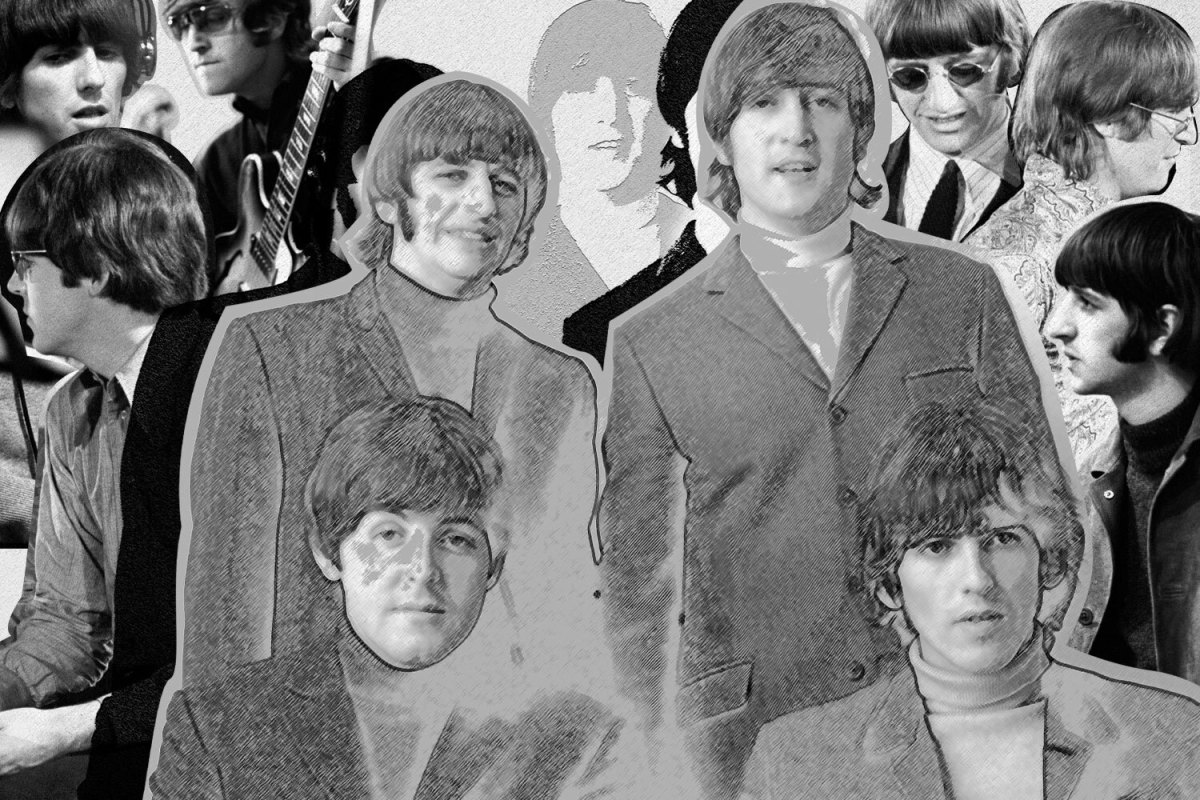
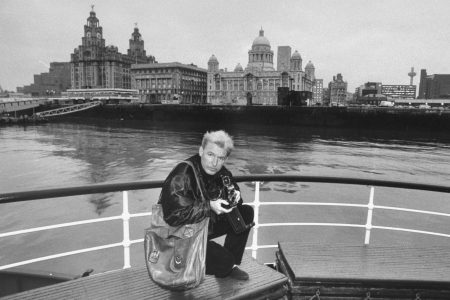
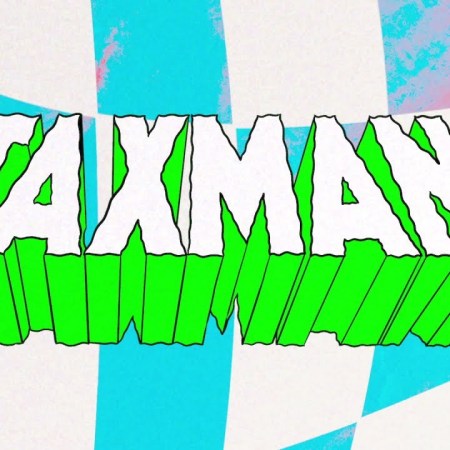
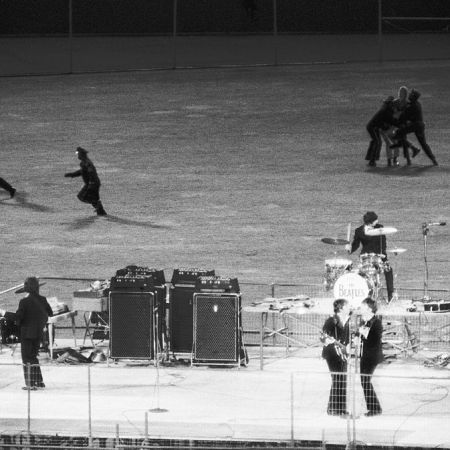
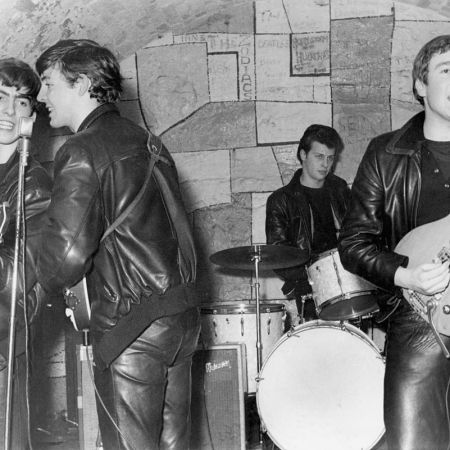














![[L-R] Bill Berry, Michael Stipe, Mike Mills and Peter Buck of R.E.M. at the Aragon Ballroom in Chicago, Illinois on July 7, 1984.](https://www.insidehook.com/wp-content/uploads/2024/12/rem-book-interview.jpg?resize=750%2C750)




